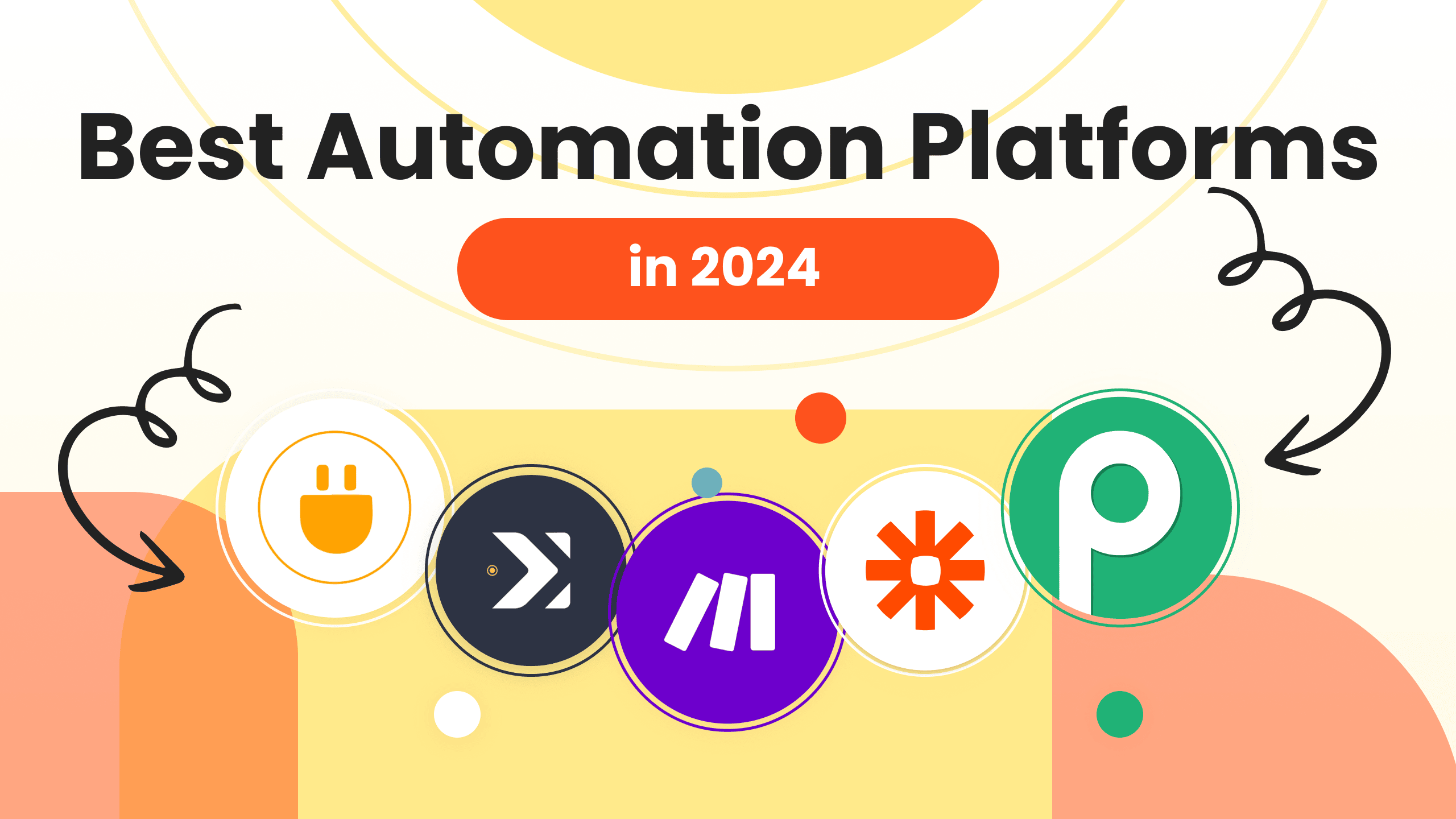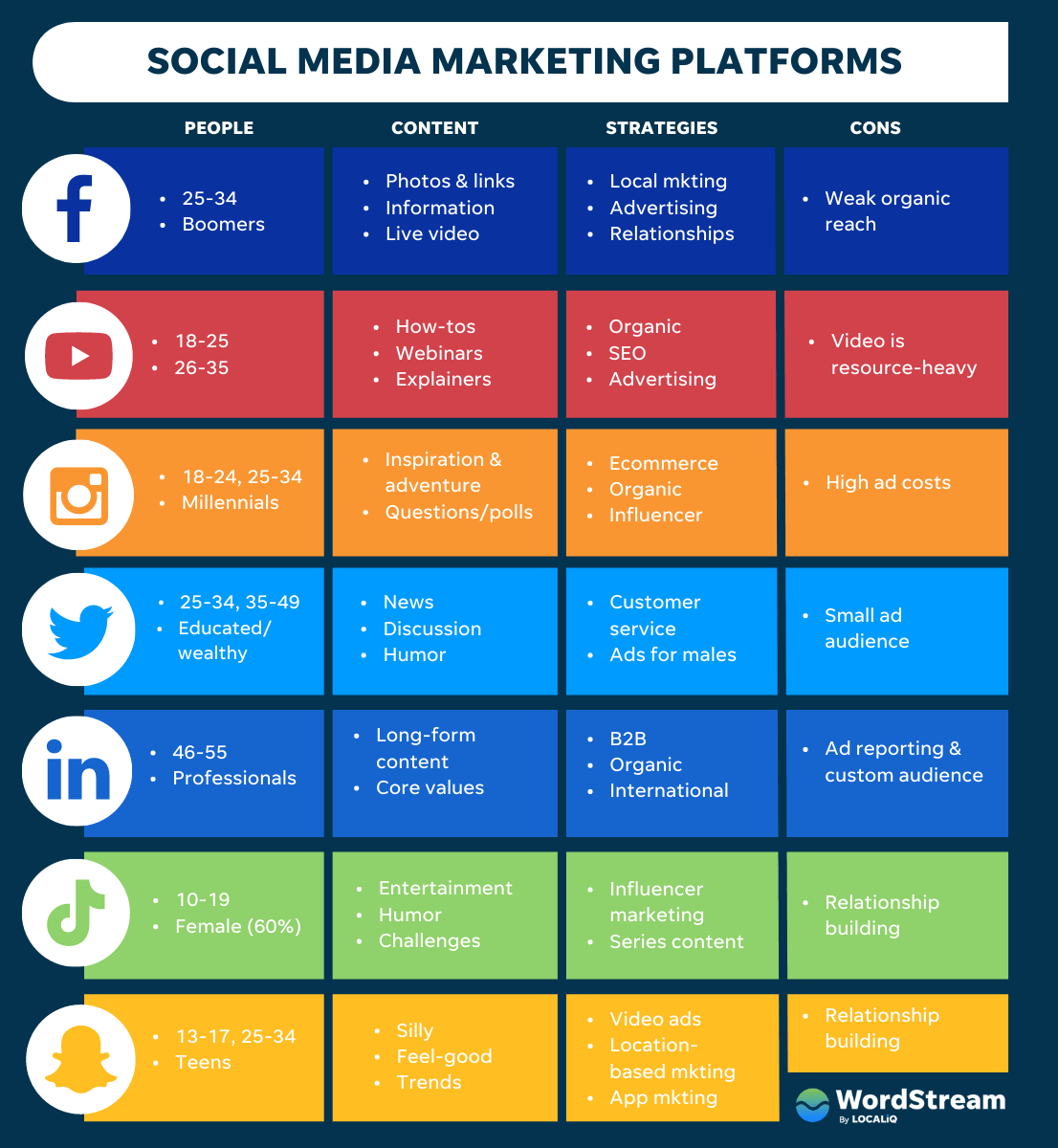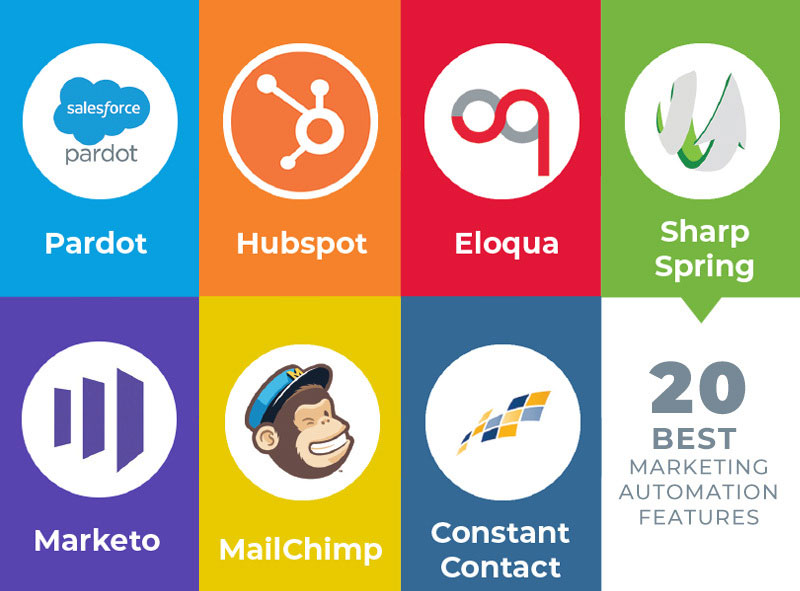-
What's Your Favorite Marketing Automation Platform?
- 1. What Are the Key Features of a Marketing Automation Platform?
- 2. How Do Marketing Automation Platforms Improve Efficiency?
- 3. What Are the Benefits of CRM Integration in Marketing Automation?
- 4. How Does Lead Scoring Work in Marketing Automation?
- 5. What Should You Consider When Choosing a Marketing Automation Platform?
- What are the best marketing automation platforms?
- What is the best platform for automation?
- What is the best marketing platform?
- What is the most common use of marketing automation?
- Frequently Asked Questions from Our Community
In today’s fast-paced digital landscape, marketing automation has become an indispensable tool for businesses aiming to streamline their processes, enhance customer engagement, and drive growth. With a plethora of platforms available, choosing the right one can be a daunting task. Each platform offers unique features, from email marketing and lead nurturing to analytics and CRM integration, catering to diverse business needs. In this article, we explore the top marketing automation platforms, highlighting their strengths and key functionalities. Whether you’re a small business owner or a marketing professional, discovering your favorite platform can transform the way you connect with your audience and achieve your goals.
What's Your Favorite Marketing Automation Platform?
Marketing automation platforms have become essential tools for businesses looking to streamline their marketing efforts, improve customer engagement, and drive sales. With so many options available, choosing the right platform can be challenging. Below, we explore key aspects of marketing automation platforms to help you identify your favorite.
See Also Seeking Recommendations: Customer Data Platform (CDP)?
Seeking Recommendations: Customer Data Platform (CDP)?1. What Are the Key Features of a Marketing Automation Platform?
Marketing automation platforms offer a variety of features designed to simplify and enhance marketing tasks. Some of the most important features include:
- Email Marketing: Automating email campaigns to nurture leads and maintain customer relationships.
- Lead Scoring: Identifying and prioritizing high-quality leads based on their behavior and engagement.
- CRM Integration: Seamlessly connecting with customer relationship management systems for better data management.
- Analytics and Reporting: Providing insights into campaign performance and ROI.
- Workflow Automation: Automating repetitive tasks to save time and improve efficiency.
 For Those in Marketing Analytics, What Tools Do You Use/Recommend?
For Those in Marketing Analytics, What Tools Do You Use/Recommend?| Feature | Description |
|---|---|
| Email Marketing | Automates email campaigns for lead nurturing and customer retention. |
| Lead Scoring | Ranks leads based on their engagement and likelihood to convert. |
| CRM Integration | Connects with CRM systems for unified data management. |
| Analytics | Provides detailed reports on campaign performance. |
| Workflow Automation | Streamlines repetitive marketing tasks. |
2. How Do Marketing Automation Platforms Improve Efficiency?
Marketing automation platforms significantly improve efficiency by automating repetitive tasks and centralizing marketing efforts. For example, instead of manually sending emails to each lead, the platform can automatically send personalized emails based on user behavior. This not only saves time but also ensures consistency and accuracy in communication. Additionally, these platforms provide real-time analytics, allowing marketers to make data-driven decisions quickly.
3. What Are the Benefits of CRM Integration in Marketing Automation?
Integrating a marketing automation platform with a CRM system offers numerous benefits. It ensures that all customer data is centralized, providing a 360-degree view of each customer. This integration enables personalized marketing campaigns, improves lead management, and enhances customer retention. For instance, when a lead interacts with a campaign, their data is automatically updated in the CRM, allowing sales teams to follow up with relevant information.
See Also Email Marketing Platform Recommendation That Is Similar to Mailchimp?
Email Marketing Platform Recommendation That Is Similar to Mailchimp?4. How Does Lead Scoring Work in Marketing Automation?
Lead scoring is a critical feature that helps businesses prioritize leads based on their likelihood to convert. The platform assigns points to leads based on their engagement level, such as email opens, website visits, or form submissions. High-scoring leads are then flagged for immediate follow-up, while low-scoring leads are nurtured further. This process ensures that sales teams focus their efforts on the most promising opportunities.
5. What Should You Consider When Choosing a Marketing Automation Platform?
When selecting a marketing automation platform, consider the following factors:
- Ease of Use: The platform should have an intuitive interface and be easy to navigate.
- Scalability: Ensure the platform can grow with your business.
- Integration Capabilities: Check if it integrates with your existing tools, such as CRM and analytics software.
- Customer Support: Reliable support is crucial for troubleshooting and guidance.
- Cost: Evaluate the pricing structure to ensure it fits your budget.
| Factor | Importance |
|---|---|
| Ease of Use | Ensures quick adoption and minimizes training time. |
| Scalability | Supports business growth without requiring a platform switch. |
| Integration | Enhances functionality by connecting with other tools. |
| Customer Support | Provides assistance when issues arise. |
| Cost | Ensures the platform is affordable and offers good value. |
What are the best marketing automation platforms?

What is Marketing Automation?
Marketing automation refers to the use of software platforms and technologies designed to automate repetitive marketing tasks, streamline workflows, and improve efficiency. These platforms help businesses nurture leads, manage campaigns, and analyze performance, allowing marketers to focus on strategy and creativity.
Top Marketing Automation Platforms
Here are some of the best marketing automation platforms available today:
- HubSpot: Known for its all-in-one marketing suite, HubSpot offers tools for email marketing, CRM, social media management, and analytics.
- Marketo: A robust platform designed for enterprise-level businesses, Marketo excels in lead management, email campaigns, and customer engagement.
- Pardot: Salesforce's marketing automation tool, Pardot, is ideal for B2B companies, offering advanced lead scoring and CRM integration.
- ActiveCampaign: A user-friendly platform that combines email marketing, automation, and CRM features, perfect for small to medium-sized businesses.
- Mailchimp: While primarily known for email marketing, Mailchimp has expanded into automation, offering tools for audience segmentation and campaign tracking.
Key Features to Look for in a Marketing Automation Platform
When choosing a marketing automation platform, consider the following features:
- Lead Management: Tools for capturing, nurturing, and scoring leads effectively.
- Email Marketing: Advanced email campaign creation, personalization, and analytics.
- CRM Integration: Seamless integration with customer relationship management systems.
- Analytics and Reporting: Detailed insights into campaign performance and ROI.
- Multi-Channel Marketing: Support for email, social media, SMS, and other channels.
Benefits of Using Marketing Automation Platforms
Marketing automation platforms offer numerous advantages for businesses:
- Time Savings: Automating repetitive tasks frees up time for strategic planning.
- Improved Lead Nurturing: Personalized campaigns help convert leads into customers.
- Enhanced Customer Engagement: Targeted messaging increases customer satisfaction and loyalty.
- Data-Driven Decisions: Analytics provide actionable insights for optimizing campaigns.
- Scalability: Platforms grow with your business, accommodating increased demand.
How to Choose the Right Marketing Automation Platform
Selecting the right platform depends on your business needs:
- Define Your Goals: Identify what you want to achieve with automation.
- Evaluate Your Budget: Choose a platform that fits your financial constraints.
- Assess Integration Capabilities: Ensure compatibility with your existing tools.
- Test User-Friendliness: Opt for a platform with an intuitive interface.
- Check Customer Support: Reliable support is crucial for troubleshooting and guidance.
What is the best platform for automation?

What is the Best Platform for Automation?
The best platform for automation depends on the specific needs of the user, such as the type of tasks to be automated, the level of technical expertise, and the budget. Some of the most popular platforms include UiPath, Automation Anywhere, and Blue Prism. These platforms offer a range of features, from simple task automation to complex business process automation, and are widely used across various industries.
Key Features to Look for in an Automation Platform
When choosing an automation platform, it's essential to consider the following key features:
- Ease of Use: The platform should have an intuitive interface that allows users to create and manage automation workflows without extensive coding knowledge.
- Scalability: The platform should be able to handle an increasing number of tasks and users as your business grows.
- Integration Capabilities: It should seamlessly integrate with other software and systems you currently use, such as CRM, ERP, and cloud services.
Top Automation Platforms in the Market
Here are some of the top automation platforms available today:
- UiPath: Known for its user-friendly interface and robust community support, UiPath is ideal for both beginners and advanced users.
- Automation Anywhere: Offers a cloud-based platform with strong AI and machine learning capabilities, making it suitable for complex automation tasks.
- Blue Prism: Focuses on enterprise-level automation with a strong emphasis on security and compliance, making it a favorite among large organizations.
How to Choose the Right Automation Platform for Your Business
Selecting the right automation platform involves several considerations:
- Identify Your Needs: Determine what tasks or processes you want to automate and what outcomes you expect.
- Evaluate Costs: Consider both the initial investment and ongoing costs, including licensing, training, and maintenance.
- Check Vendor Support: Ensure the platform offers reliable customer support and a strong user community for troubleshooting and advice.
Benefits of Using Automation Platforms
Automation platforms offer numerous benefits that can significantly impact your business:
- Increased Efficiency: Automating repetitive tasks frees up time for employees to focus on more strategic activities.
- Reduced Errors: Automation minimizes the risk of human error, leading to more accurate and consistent results.
- Cost Savings: By streamlining processes, automation can reduce operational costs and improve overall profitability.
What is the best marketing platform?

What Defines the Best Marketing Platform?
The best marketing platform depends on your business goals, target audience, and budget. A platform that offers comprehensive tools for analytics, automation, and audience engagement is often considered ideal. Key factors include:
- Scalability: The platform should grow with your business.
- User-friendliness: Easy navigation and setup are crucial.
- Integration capabilities: Seamless integration with other tools like CRM or email marketing software.
Top Features to Look for in a Marketing Platform
When choosing a marketing platform, prioritize features that align with your marketing strategy. Essential features include:
- Automation: Saves time by automating repetitive tasks.
- Analytics: Provides insights into campaign performance.
- Customization: Allows tailored campaigns for specific audiences.
Popular Marketing Platforms in 2023
Some of the most widely used marketing platforms include:
- HubSpot: Known for its all-in-one marketing suite.
- Mailchimp: Ideal for email marketing and automation.
- Google Ads: Perfect for pay-per-click advertising.
How to Choose the Right Marketing Platform for Your Business
Selecting the right platform requires careful consideration of your business needs. Steps to follow:
- Identify your goals: Determine what you want to achieve.
- Evaluate your budget: Ensure the platform fits your financial plan.
- Test the platform: Use free trials or demos to assess functionality.
Benefits of Using a Comprehensive Marketing Platform
A robust marketing platform offers numerous advantages, such as:
- Centralized management: Manage all campaigns from one place.
- Improved ROI: Optimize campaigns for better returns.
- Enhanced customer insights: Gain a deeper understanding of your audience.
What is the most common use of marketing automation?

The most common use of marketing automation is to streamline and optimize repetitive marketing tasks, enabling businesses to nurture leads, improve customer engagement, and drive conversions more efficiently. It is widely used to deliver personalized content, manage email campaigns, and track customer interactions across multiple channels.
1. Lead Nurturing and Segmentation
Marketing automation is primarily used for lead nurturing and segmentation. By automating the process of identifying and categorizing leads based on their behavior, businesses can deliver targeted content that aligns with the customer's stage in the buying journey.
- Segmenting leads based on demographics, interests, or engagement levels.
- Delivering personalized content to nurture leads through automated workflows.
- Tracking lead behavior to identify sales-ready opportunities.
2. Email Marketing Campaigns
Email marketing is one of the most common applications of marketing automation. It allows businesses to send timely and relevant emails to their audience without manual intervention.
- Automating welcome emails for new subscribers.
- Sending abandoned cart reminders to recover lost sales.
- Triggering re-engagement campaigns for inactive users.
3. Customer Journey Mapping
Marketing automation tools help businesses map the customer journey by tracking interactions across various touchpoints. This ensures a seamless and consistent experience for the customer.
- Identifying key touchpoints in the customer lifecycle.
- Automating follow-ups based on customer actions.
- Providing insights to optimize the customer experience.
Marketing automation extends to social media, where it helps businesses schedule posts, monitor engagement, and analyze performance.
- Automating post scheduling for consistent social media presence.
- Tracking social media metrics to measure campaign effectiveness.
- Engaging with followers through automated responses.
5. Analytics and Reporting
Marketing automation platforms provide robust analytics and reporting capabilities, enabling businesses to measure the success of their campaigns and make data-driven decisions.
- Tracking campaign performance in real-time.
- Generating detailed reports on lead conversion rates.
- Analyzing customer behavior to refine marketing strategies.
Frequently Asked Questions from Our Community
What is a marketing automation platform?
A marketing automation platform is a software solution designed to help businesses streamline, automate, and measure marketing tasks and workflows. These platforms enable companies to target customers with personalized content, nurture leads, and improve overall marketing efficiency. By automating repetitive tasks like email campaigns, social media posting, and lead scoring, businesses can focus on strategic initiatives while maintaining consistent engagement with their audience.
Why is choosing the right marketing automation platform important?
Choosing the right marketing automation platform is crucial because it directly impacts your ability to engage customers effectively and drive revenue growth. A platform that aligns with your business goals, integrates seamlessly with your existing tools, and offers scalable features can significantly enhance your marketing efforts. On the other hand, a poorly chosen platform may lead to inefficiencies, missed opportunities, and wasted resources.
What features should I look for in a marketing automation platform?
When selecting a marketing automation platform, consider features like email marketing, lead scoring, CRM integration, analytics, and multi-channel campaign management. These features ensure you can create personalized campaigns, track customer interactions, and measure the effectiveness of your strategies. Additionally, look for platforms that offer scalability, user-friendly interfaces, and robust customer support to adapt to your growing business needs.
How do I determine which marketing automation platform is best for my business?
To determine the best marketing automation platform for your business, start by assessing your specific needs, such as the size of your team, your budget, and your marketing goals. Research platforms that offer the features you require and read reviews or case studies to understand their strengths and weaknesses. Many platforms also offer free trials or demos, allowing you to test their functionality before committing. Consulting with your team and seeking expert advice can also help you make an informed decision.
Leave a Reply


Articles of interest